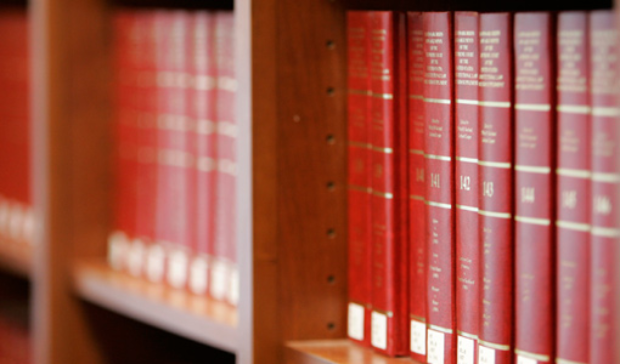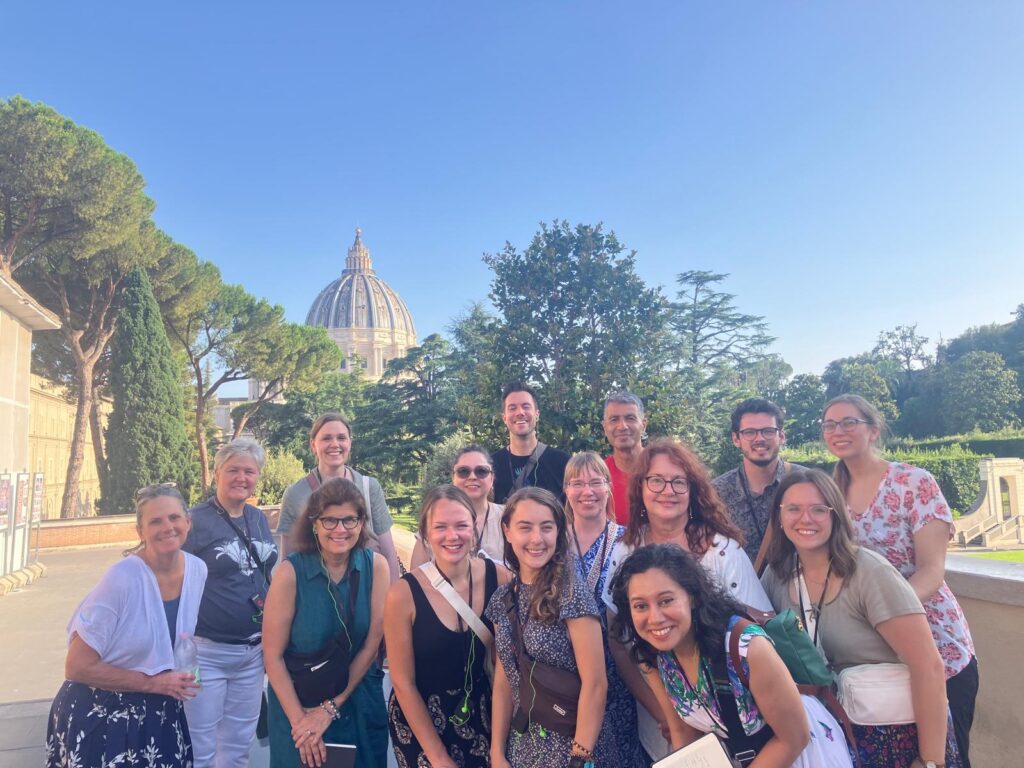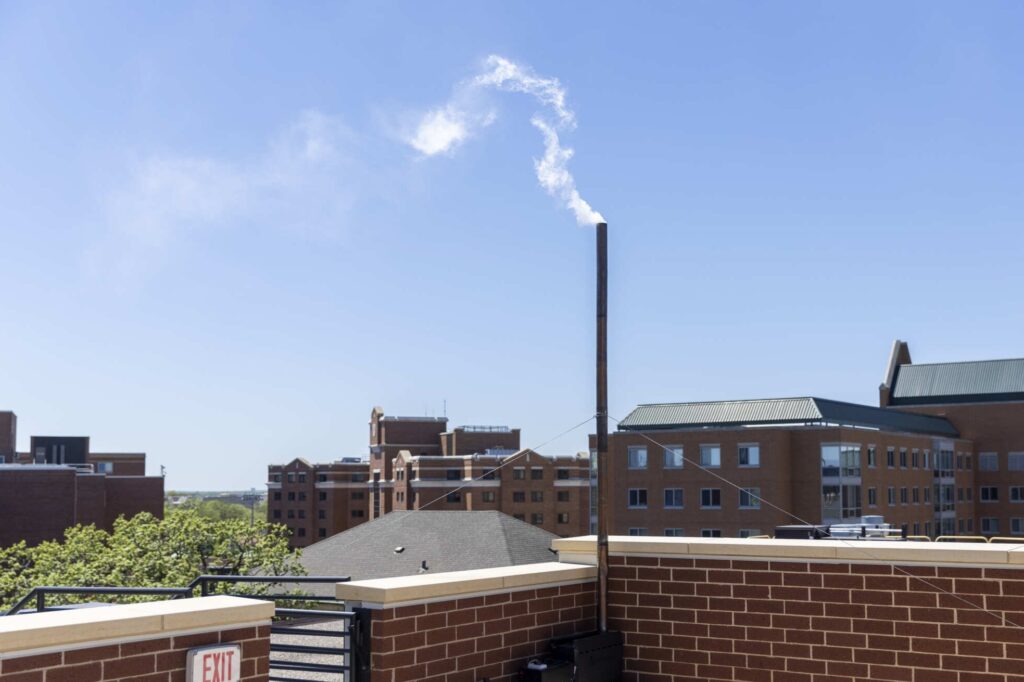 Excerpts from a speech delivered Nov. 2 by Br. Bob Smith, O.F.M. Cap., director of Educational and Formational Ser vices for the Archdiocese of Milwaukee and president of Messmer Catholic Schools...
Excerpts from a speech delivered Nov. 2 by Br. Bob Smith, O.F.M. Cap., director of Educational and Formational Ser vices for the Archdiocese of Milwaukee and president of Messmer Catholic Schools...
I got out of prison yesterday. I’m telling the truth. But I didn’t do anything. Once a month I do pastoral visits at a Wisconsin prison, and it’s probably one of, if not the most important things that I do in my ministry. I visit a young man there who has been at this prison for seven years. He made a serious mistake in his life, and I visit him to support him. This young man is probably smarter than most people in this auditorium, including me, but has a tenth grade education. He can quote the classics, he has a mind as sharp as anything I’ve ever seen, and I could bring him to any of your classes, and he would fit right in. What I did not know when he was at our school is that his mother was bipolar, had lupus, had a drug problem, that his father ran a crack house, that there was no electricity at the house, and so he went from neighbor to neighbor each evening in order to shower and get ready for school. What I didn’t know is that the crack kids would make sexual threats toward him, that he was beaten, and that before he was born, his father told his mother he didn’t want him, so he should be aborted. When I visit this young man, and it’s the reason I tell you it’s the most important thing that I do, he talks constantly about what has helped him to have hope and to look toward the day, whenever it will be, that he’s released.
The most important things in his life are his faith and his Catholic education. He talks about the nuns in elementary school, about the teachers in high school. He talks about what they taught him as he tutors 28 inmates at this prison. This young man translates Braille for the blind. He has had three specials on National Public Radio, because everyone says he’s the last person who needs to be in prison. Well, we can argue about the merits of whether he should be there or not. What we can’t argue about is what has helped him believe in a future, and that’s his Catholic education. …
If you want to know what the worst sin of holding people back is in this country, it is education. To give them an inferior education is to condemn them to failure. That’s what it is. And the most vulnerable are people who live in our central cities and barrios. And it doesn’t matter what city, which state — it’s the same. Who are the people who go to those areas? Generally, it’s the Catholic Church. They go to places where others are unwilling to go. In many instances, it’s simply a continuation of what happened 60, 70, 80 years ago, when the immigrants to this country were Irish, Polish, German, Italian. Today, they are Africans, Asians, Latinos — the people who need education the most.
What keeps Jeremy, this guy I visit in prison, going is that he believes there will be a better tomorrow. He doesn’t know if he’s going to serve eight more years or one more year, but what he does know — and this is why it’s most important that I visit him once a month, that I write him once a week — is what he wants to do with his life. Do you know what that is, what he says every single time? “I want to serve. I want to volunteer at a soup kitchen. I want to look at what Dorothy Day did and go to a Catholic worker house. I’m willing to sweep floors, to mop hallways, but I want to serve.” He regrets the mistake he made, he blames himself, but when you look at where that kid came from, he never had a chance. And he’s one of many.
So what is the future? Hope. Before I got into education I was a parole officer in Detroit. And I saw the other side; I put a number of people in prison. In the inner cities, look at the crime statistics. The crime in inner cities is not blacks or Hispanics against whites. It’s against the very people who live in the neighborhoods. Now why would poor people steal from poor people? Because it doesn’t matter. Why would poor people threaten and shoot and stab and kill other poor people? Because life doesn’t matter. I understand that those things don’t mean anything to some people in society because they have no hope. And if they see no future for themselves, they will see none for you and me. The 50% dropout rate in the Milwaukee public schools comes out to 50,000 kids every four years. Where do you think they’re going? And the dropout rate in Milwaukee is not the worst in America. At some point we will have to reckon with what happens when there is no hope in society, and the adults have to come up with solutions. …
There are some of you who I know are thinking about education as a career: I applaud you. You won’t make any money, especially if it’s in Catholic schools, but you will go to bed every night knowing you’ve made a difference. And you won’t know the long-term effect. You could have the next president in your room, the next senator, but you also may stop a kid from committing suicide, from committing a crime, from killing a friend. You also will bring God into children’s lives. There is a richness in our Catholicism that we should not apologize for, and we have to share that with people. There are other faiths that do it with abandon. We need to get out there and say, “This is who we are, this is what we believe, and we’d like to share it with you.” …
Following his remarks, Brother Bob fielded a number of questions on school choice and the voucher program in Milwaukee.
Who were some of the community partners behind the successful implementation of the voucher program in Milwaukee?When the voucher movement started, the business community was tired of getting people who were illiterate applying for jobs. They had people with high school diplomas who couldn’t write, couldn’t fill out applications, and they said, “We have pumped hundreds of thousands of dollars into the public school system, and we’re getting nothing. If the Catholic and Lutheran and Baptist schools can do a better job cheaper, then we’ll support vouchers.” So with the Messmer schools, we get support in a rather unconventional way, not only from alumni, but also from foundations and businesses. We’ve also been able to have alums endow college scholarships for our graduates to schools like Marian college in Fond du Lac, the University of Dayton and Marquette University. When our kids graduate, very few of them are able or willing to take out loans, so most are going on full or almost full scholarships to college. But it’s not only the local community. We’ve received a little bit of national support also.
How to you respond to the concern that vouchers bring excessive government scrutiny? When we got involved in choice, as the first religious school in the country, the department of public instruction said, “You’ve got an excellent academic program and we want you to get vouchers, but you will have to teach religion after school and take out all of the religious signs.” At that time we were suffering financially, but we said to them that our Catholicity is non-negotiable. The legislators and then-governor Tommy Thompson made sure there would be no entanglement between the state and the Church. And so choice or vouchers have nothing to say about curriculum, about religious exercises, about things in the school, teacher preparation, nothing. There is what’s called an optout clause in the legislation, which allows parents to have a child opt out of a religious exercise because of their faith. In the years we have been in the voucher program, no one has opted out of anything. The people who have created problems for vouchers are folks like People for the American Way, the NEA, the ACLU and the NAACP. Our Supreme Court mocked the NAACP, saying, “Of all the groups, you should be supporting vouchers for poor kids, and why don’t you?” And their lawyer said, “Well, because they’ll segregate schools.” And one of the justices said, “Counselor, Milwaukee public schools are 95% minority. How much more segregated can you get?” It’s really tragic, because years ago, you had people in the South who stood at the schoolhouse door, stopping minority kids from coming in, and today you’ve got them stopping kids from leaving. …
What is the relationship between public schools, charter schools, private and Catholic schools?
A lot of people hear “school choice” and they think vouchers. The reality is that school choice means any educational option that a parent or guardian would choose. So home schooling, charter schools, any of those options, are school choice. Wisconsin is one of the largest states with home-schooled children in the nation. In Milwaukee, we have about 13,000 students in charter schools. More than half of those charter schools are formerly public schools. There are 14,800 students in the choice program who receive vouchers. In the voucher schools you’ve got a Hmong school, a Muslim school, a Jewish school, with Catholic schools making up the majority, about 90%. Most of the money raised before we had vouchers was actually raised by the Catholic business community, but they had no problem with vouchers going to kids who went to Baptist, Jewish, nonsectarian private schools. They were interested in high quality education and parents being able to choose. …
So you don’t lose the Catholic identity with the choice? Absolutely not. Unlike charter schools, which are public schools, we are Catholic schools that take vouchers. We are not choice schools. Choice doesn’t run us. Before we had vouchers, we were raising over a million dollars a year to cover scholarships for kids, and if the voucher program dried up tomorrow, we are confident we could raise the 3 million dollars or so to continue. We’re not beholden to the state, and we will never sell our Catholicity to the state. …
How does the choice program affect students with learning disabilities or other special needs who otherwise would not be served by private schools that can choose not to take them? One argument made early on was that Catholic schools take the cream of the crop and expel all of their problems. In fourteen years, every argument used against Catholic and other private schools has been proven false. First of all, public schools don’t take everybody. What are reformed schools or alternative schools? Kids don’t choose those. If you’re expelled from a public school, that’s where you go. The public school system has to provide education for every student. No single public school deals with all of the different special needs students. In Milwaukee, for example, kids who are ambulatory or who have serious special needs are chartered out to St. Coletta’s, a Catholic school. It’s been that way for years.
One of the things we have to do in the Catholic schools is to work together with public schools for special needs children. I think we have an obligation to do everything we can to deal with the kids who want to be in our schools. Now that means Messmer may not have a special needs program for ADD, ADHD or CD kids, but the Milwaukee Archdiocese may have a school where kids with special needs can attend. So similar to public schools, we will provide something. In Wisconsin, special needs kid can be worth anywhere from $14,000- $30,000, while under school choice we get $5,800 for every kid. The public system gets to keep the rest. So when I said it’s not about money, it’s really not about money. It’s about helping kids. …
How do answer the concern that with vouchers parents will send their kids to private schools or to suburban schools rather than the inner city ones? Doesn’t it make those schools mad? Yes, it does. Somebody argued that you’re punishing public schools. The way the voucher works, a kid in Milwaukee is worth $11,000, while the voucher is worth $5,800. The public school system gets the rest of the money without the kid, in fact making money on every kid who goes to a private school. If you want to cause a revolution in this country tomorrow, close down the Catholic schools in your diocese. You’re saving taxpayers millions of dollars. You’ve been doing it for how many years? …
Vouchers don’t support schools; they supporting parents who choose schools. What vouchers do in K-12 education is create competition. Private schools already know they have to serve customers because they’re tuition dependent. If a parent gets mad and takes out three kids, that’s hitting the bottom line. Public schools get funded regardless of performance every single year. But if they have to compete with the neighboring independent or religious school, all of a sudden curriculum becomes an issue, facilities become an issue, teachers become an issue. And the Milwaukee public school board has admitted publicly that the voucher program has improved the system.






